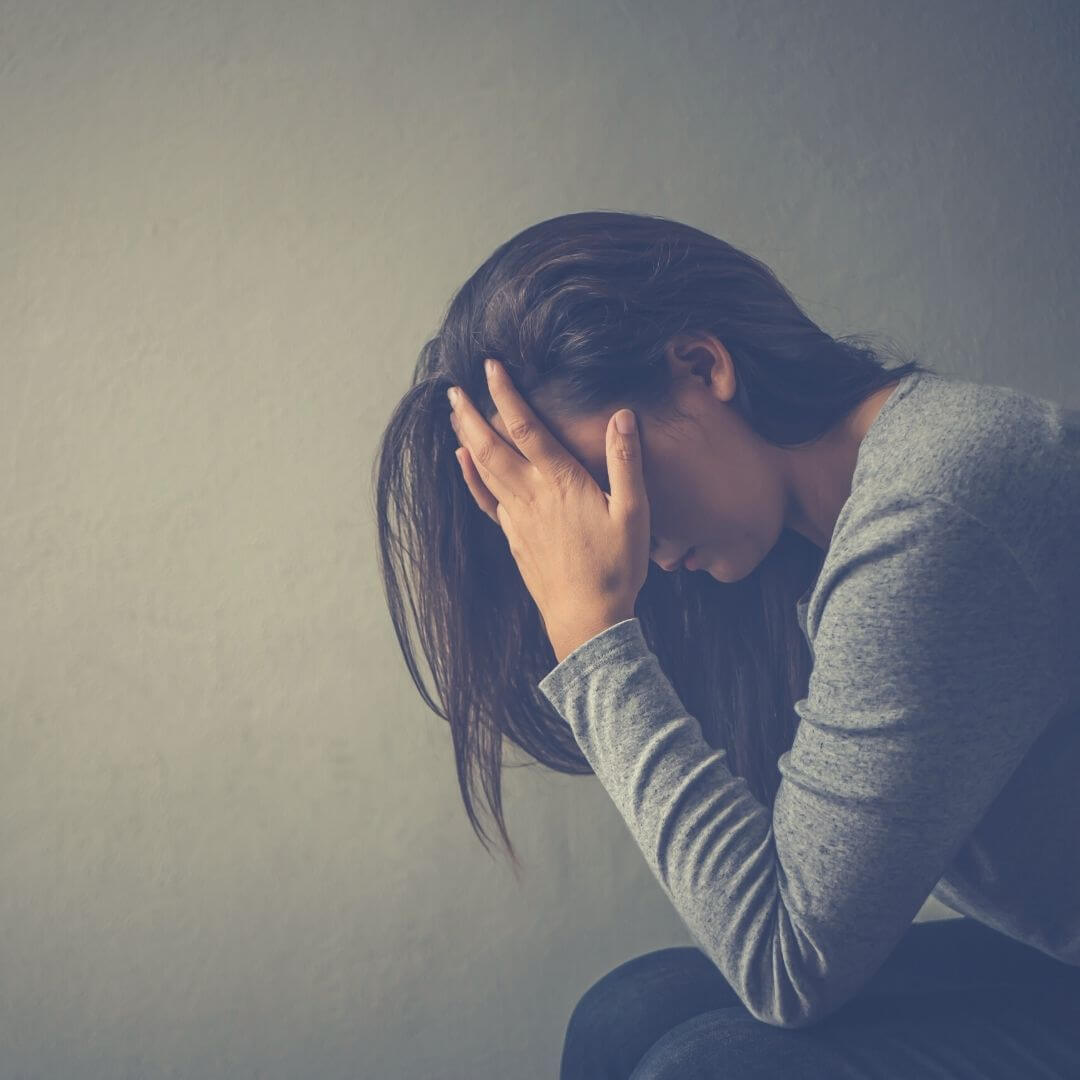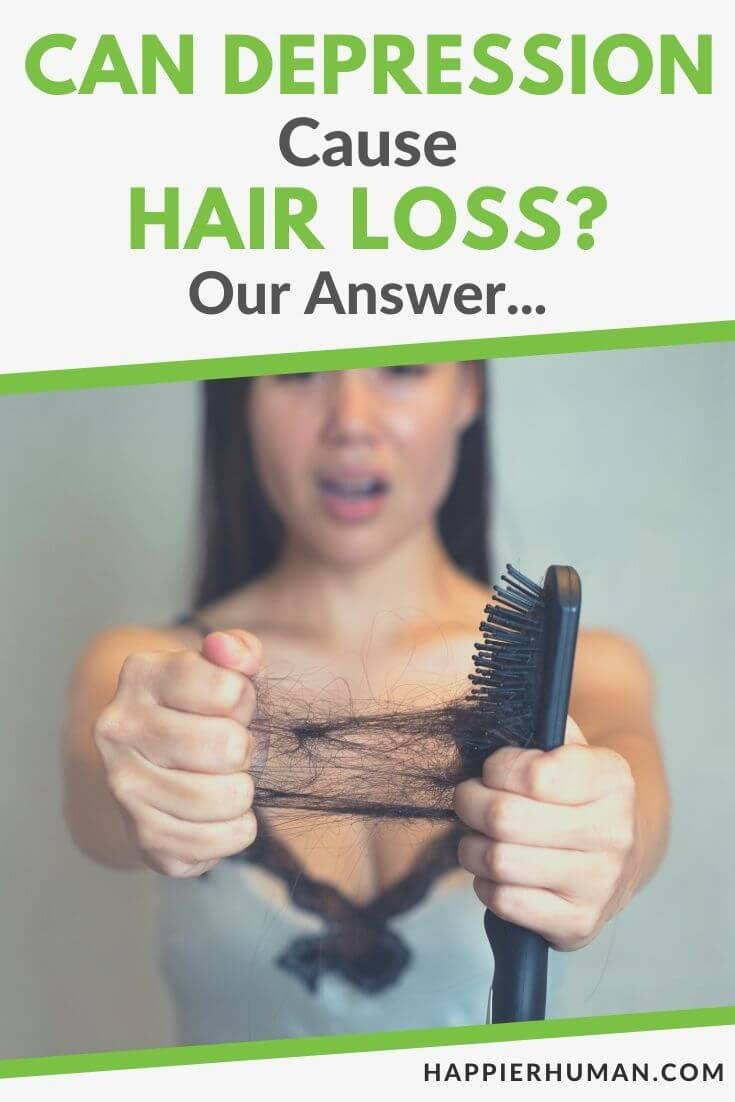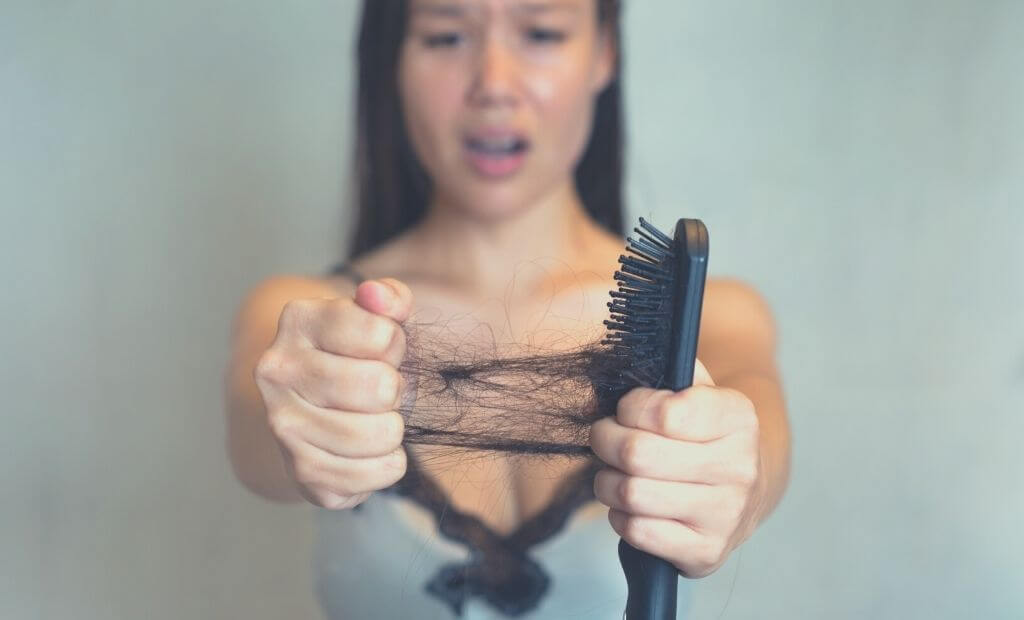If you’re dealing with thinning hair alongside depression, you may be wondering: can depression cause hair loss?
Understandably, you may worry about whether the two are connected. No one wants their hair to thin out, and if it’s happening to you, you want to know why. When it comes to depression and hair loss, there’s no evidence that depression directly causes hair loss. However, there are correlations between the two.
Why You May Be Having Hair Loss While Struggling with Depression
When your mind isn’t feeling the best, it negatively affects your body. In fact, stress is a proven cause of thinning hair. For instance, stress can cause different types of hair loss including:
Stress often goes hand in hand with depression. Depression is a mental health condition that can leave you feeling sad, angry, empty, and hopeless. If you have depression, you may have anxiety or feel worthless.
You may be tearful, find that you’re having trouble falling asleep, or sleeping too much. Everything in your life may feel extremely heavy and challenging.

Going through a major loss or life change can trigger both stress and feelings of depression. When your mind perceives a threat, your body releases more stress hormones, such as cortisol.
Unfortunately, stress and depression contribute to a slew of potential health problems in almost every body system. So stress secondary to depression is quite common and could be a possible cause of hair loss.
Other Factors that May Contribute to Hair Loss
On top of stress, there are many other potential causes of hair loss. Genetics, hormone changes, nutritional deficiency, and even certain hairstyles could all contribute to hair loss.
Hypothyroidism is often a culprit of hair loss. It occurs when your thyroid gland does not produce enough hormones, causing several health problems. On top of this, some of your symptoms may mimic those of depression. Fatigue, weight gain, and memory issues could all be related to hypothyroidism as well as depression.
Hair loss may also be related to the use of antidepressant medications. Research has shown correlations between several antidepressants and a higher risk of hair loss.
If you’ve just had a baby, postpartum hair loss could be affecting you. Postpartum hair loss is due to hormonal changes that can cause hair to fall out faster for several months after giving birth. In addition, if you’re struggling with postpartum depression, it could further raise your stress levels. The good news is that if your hair loss is related to having a baby, the shedding should return to normal amounts in a matter of months.
Hair Loss and Depression: What Can You Do About Them?
It can be disheartening to look at your comb or shower floor and see fallen hair. But while it may be difficult to pinpoint the exact causes of your hair loss, you can take steps to try and maintain a healthy body and mind to try and help slow your hair loss.
If you’re suffering from feelings of depression, it’s vital to seek help. Talk to your doctor or someone you trust about how you’re feeling. Medication could ease your symptoms and help you feel like yourself again. In addition, engaging in therapy could empower you with more positive coping mechanisms and support as you work through a challenging time.
Affirmations for depression are a great way to start every morning on your healing journey. They can improve your focus and reset your thought patterns. Affirmations also help reprogram your subconscious to react differently to hardships in your life.

Many people find that mindfulness is a powerful practice to combat depression and anxiety. Mindfulness is scientifically proven to improve your health both mentally and physically. It also reduces symptoms of anxiety and depression.
Practicing mindfulness doesn’t have to be complicated. It could mean doing even a short yoga routine, meditating, journaling, or being fully present in each moment.
Since stress can promote untimely hair loss, it’s important to practice self-care and reduce your overall stress, even in small ways. For example, adult coloring books are a good way to alleviate stress and anxiety. Keeping a stress ball within reach is another easy and inexpensive way to release tension and difficult feelings.
Final Thoughts on Whether Depression Can Cause Hair Loss
Coping with hair loss can be worrisome and maybe even affect your self-image. But while you may not be sure if you can stop it, you can take steps to keep your mind and body healthy… which in the end can help slow it down.
If you seek out ways to ease depression, lower your daily stress levels, and practice self-care, you’ll reap the benefits in every part of your life. Your hair won’t just thank you for it, so will your body and mind.


